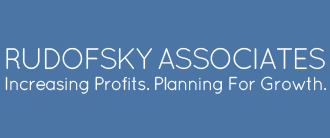SCORE Honors Six NY Small Business Successes
On Tuesday July 25th, the New York chapter of SCORE, Counselors to America’s Small Business, presented awards to the founders of six successful small businesses: Lisa and Felix Hendrickson of Hendrickson Custom Cabinetry, Peggy Levee of Rain or Shine (tent rental), Caylin Sanders of EscapeMaker.com, the founder of The Pink Slip, Carl Broady of Urban Biker Magazine and David Rudofsky of Rudofsky Associates. For a full list of previous SCORE successes, go to: http://www.score.org/success_story_archive.html
My SCORE counselor was the one who suggested the name Rudofsky Associates, and also gave me great advice on how to network with other independent consultants and grow my consulting practice. Interestingly, most of the other awardees needed assistance from SCORE in the areas of business planning and financing, as opposed to marketing. SCORE has a strong affiliation with the Small Business Administration, which gives them deep insights into how new business owners should apply for SBA-backed loans. -dr


